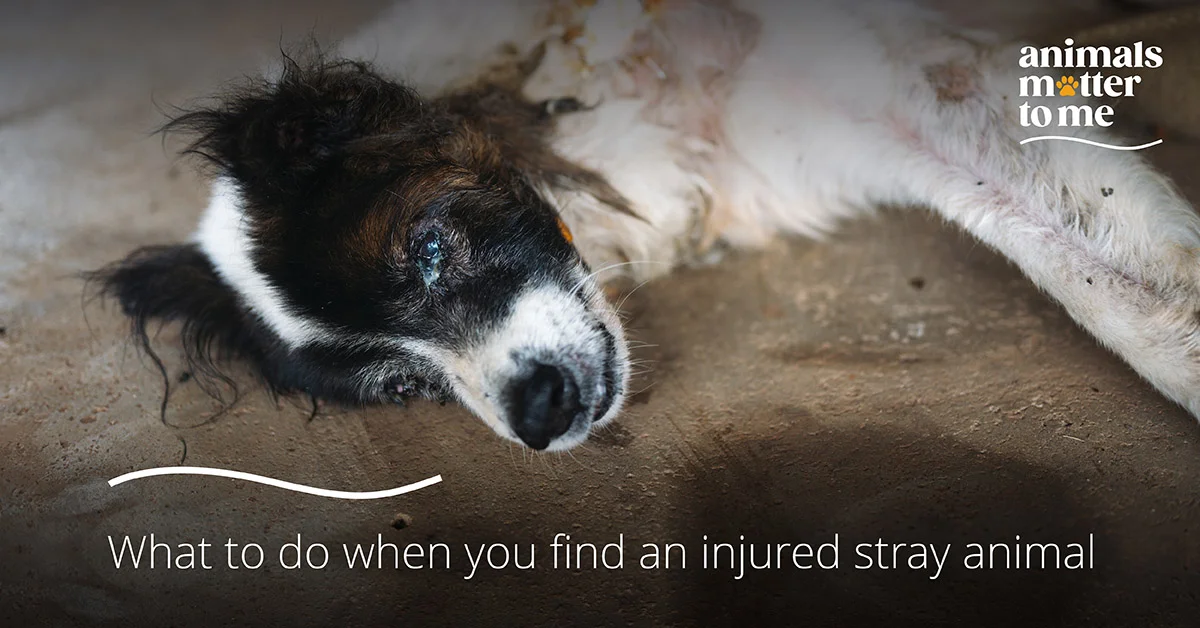Finding an injured animal can elicit a myriad of emotions ranging from sympathy to alarm. You might wonder: should you report it, or can you handle the situation on your own? While the instinctive urge to help is commendable, this scenario gathers complexity. Reporting an injured animal is not merely a bureaucratic formality; it is a moment for introspection and a challenge to societal norms regarding animal welfare.
The first point to understand is that many individuals feel a deep connection to animals. When encountering an injured creature—whether it’s an abandoned dog, a wounded bird, or a distressed cat—our empathic instincts drive us toward action. However, before rushing in, it’s vital to consider the larger implications of your decisions. The repercussions of your actions may ripple well beyond the immediate scenario.
Consider the potential danger posed by an injured animal. Whether they are in physical pain or frightened, an animal can react unpredictably. While your intention is to help, your approach could inadvertently provoke defensive behavior. Injured animals may bite or scratch, which could lead to painful injuries for the rescuer. Indeed, the challenge lies not just in the desire to assist, but in understanding the existential risks involved. Hence, is it wise to intervene directly, or should you report the situation to a professional?
Animal control agencies and local rescue organizations are equipped with the expertise and resources necessary to properly care for injured animals. These groups often have trained staff who can assess the condition of the animal, administer aid, and provide transportation to veterinary clinics. By reporting the animal, you not only facilitate immediate assistance, but you also promote the animal’s long-term welfare. This aligns with the larger moral imperative of ensuring safe, humane treatment for all creatures, regardless of species.
Moreover, reporting an injured animal can foster community engagement in animal welfare. It brings awareness to the ongoing plight of stray and injured animals, highlighting the necessity for collective responsibility. When individuals step up to report such incidents, they pave the way for increased visibility and advocacy for animal rights, challenging the indifferent norms that often prevail.
Reporting also serves a practical purpose in tracking animal populations and health. It provides crucial information to animal welfare organizations about trends in injuries, neglect, or abuse within a community. This data collection can lead to comprehensive strategies for intervention and prevention, helping animals more broadly. Therefore, the question arises: are we prepared to contribute to a systemic solution, rather than merely addressing individual cases?
One might also ponder the emotional aftermath of encountering an injured animal. The act of reporting can sometimes be perceived as passive compared to physical intervention. Yet, facilitating the recovery process through proper channels can be much more impactful. You may find that emotional inertia leads not to inaction, but rather to a thoughtful approach that ultimately benefits the animal involved.
Imagine driving home from work and encountering a distressed animal on the side of the road. Your heart hastens, your pulse quickens, and you are awash with concern. The dilemma presents itself: to stop and intervene or to seek help from authorities? A nuanced perspective reveals that while both actions stem from compassion, reporting the incident can escalate awareness of animal suffering and promote a culture of responsibility and care.
Additionally, there are situations where immediate reporting is crucial. For example, if the animal appears to have been hit by a vehicle, the risks multiply. In such instances, notifying local authorities ensures that the situation is managed quickly and effectively. Think of it this way: your decision to report can be the difference between life and death for that animal. Does that responsibility not weigh heavily? Are we not called to rise above individualistic instincts for the greater good?
Another significant factor is the involvement of local wildlife conservation efforts. In cases where wild animals are injured, different protocols apply. Specialized organizations often focus on rehabilitating wildlife, and reporting to them ensures that injured creatures receive appropriate care. This highlights another facet of the debate: knowing when and where to direct your call for assistance based on the species and context involved. Understanding the correct course of action can save time and precious resources, which are often in short supply.
In conclusion, the question of whether you should report an injured animal is layered with moral and ethical implications. While the instinct to help is significant, the broader responsibility towards animal welfare and community engagement takes precedence. Reporting not only assists the individual animal but also contributes to addressing systemic issues in our treatment of animals. The next time you stumble upon an injured creature, reflect on the ramifications of your decision; it is a moment that opens the door for meaningful change. So, will you choose to take a proactive stance? Your actions can pave the way for a more compassionate society.








